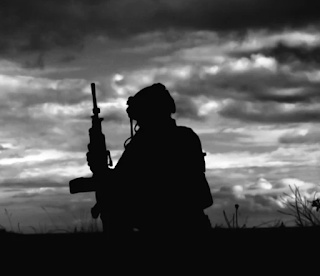We would like to encourage men and women who require assistance for addiction or co-occurring mental illnesses to seek help during Veterans Day. Recovery is possible, but it hinges on treating both substance and mental health disorders concurrently.
Many combat veterans struggle with post-traumatic stress disorder or PTSD. Those who do not receive treatment for the condition are prone to self-medicating with drugs and alcohol. Unhealthy coping mechanisms like drinking and drugging worsen the symptoms of PTSD. The behavior can also lead to the development of a substance use disorder (SUD).
On the flip side, people who use drugs and alcohol are more likely to develop PTSD, according to the National Center for PTSD. Living with addiction can lead to traumatic events that can scar one’s psyche. Simply put, veterans who drink and drug to cope with PTSD face problems; civilians who abuse drugs and alcohol are at a higher risk of developing PTSD.
Reaching Out for Help
During these difficult times, vulnerable people have been having a hard time coping with life changes. Veterans are no exception. Many veterans in recovery are at risk of relapse; isolation isn’t beneficial for people with PTSD. Feeling cut off from your support network can make it harder to reach out for help.
Experts worry that veterans are particularly vulnerable because of the pandemic, The Portland Press Herald reports. The public health crisis may be re-traumatizing for those who look at it through the lens of their wartime experience.
“Everyone is going through a rough time. It’s especially difficult for someone who is already in a tough spot,” said Dan Martins, a Navy veteran who served in Iraq and now works as a peer support specialist with the VA Maine Healthcare System. “There is a tendency to unplug from everyone and go into our shell. It’s super easy during this time.”
Since March, more than 33,000 virtual mental health visits have occurred in at Veterans Affairs Maine Healthcare System. Thankfully men and women who need support can access through telehealth conferencing platforms.
“The pandemic has hit everybody, from all levels and all backgrounds. For veterans who have been to combat or have symptoms of PTSD, isolation is going to be ten-fold,” said San Pao, a retired staff sergeant and combat veteran with post-traumatic stress disorder.
Pao is a clinical therapist who works with other veterans who struggle with PTSD and addiction. He says that the pandemic’s added stressors make it easy for some to turn to drugs and alcohol to cope.
Southern California TRICARE Addiction Treatment
More than 2 of 10 veterans with PTSD also have a substance use disorder, according to the National Center for PTSD. Almost 1 out of every 3 veterans seeking treatment for SUD also has PTSD. In the wars in Iraq and Afghanistan, about 1 in 10 returning Veterans seen in VA have a problem with alcohol or other drugs.
Veterans living with co-occurring substance use disorder and post-traumatic stress disorder can find recovery with assistance. At Hope By The Sea, we accept TRICARE coverage, which extends to veterans, certain reserve members, and their families. If you require support for addiction or PTSD, please reach out to us today.


